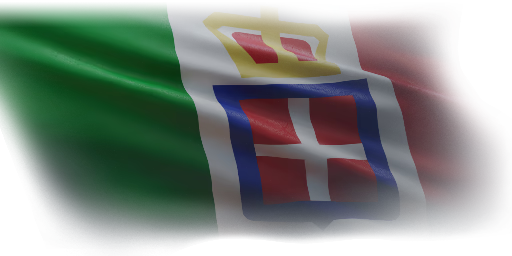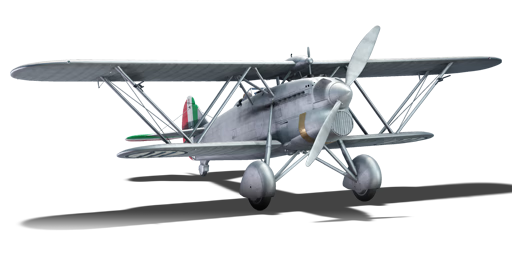


The CR.32 is a biplane fighter designed by the aeronautical engineer Celestino Rosatelli, as a modification of the CR.30: the structure around the engine was modified, and the armament was improved with two Breda-SAFAT 12.7 mm. It was given the serial number MM 201, tested at Montecelio and consequently renamed to CR.32. The biplane was appreciated by the Regia Aeronautica for its balanced manoeuvrability and armament and was used in several units and various campaigns.
Introduced in Update 1.69 "Regia Aeronautica", the CR.32 is the first aircraft available in the Italian tech tree. It is a very good fighter with very powerful 12.7 mm machine guns, particularly when using the "Air targets" belt, very manoeuvrable even at low speeds, and is in practice a turn fighter. It can withstand few shots before being destroyed, but in the end as a reserve is an excellent aircraft.
flaps
flaps
flaps
brake
control
| Belt | Belt filling | Armor penetration (mm) at a distance: | |||||
|---|---|---|---|---|---|---|---|
| 10 m | 100 m | 500 m | 1000 m | 1500 m | 2000 m | ||
| T/Ball/Ball/I/AP | 21 | 19 | 12 | 7 | 4 | 2 | |
| AP/AP-I/HEF/API-T/I | 21 | 19 | 12 | 7 | 4 | 3 | |
| API-T/AP-I/HEF | 21 | 19 | 12 | 7 | 4 | 3 | |
| API-T | 21 | 19 | 12 | 7 | 4 | 3 | |
| AP-I/AP-I/HEF/HEF | 20 | 18 | 11 | 6 | 4 | 2 | |








Flight performance | |
|---|---|
Survivability |
|---|
Weaponry |
|---|